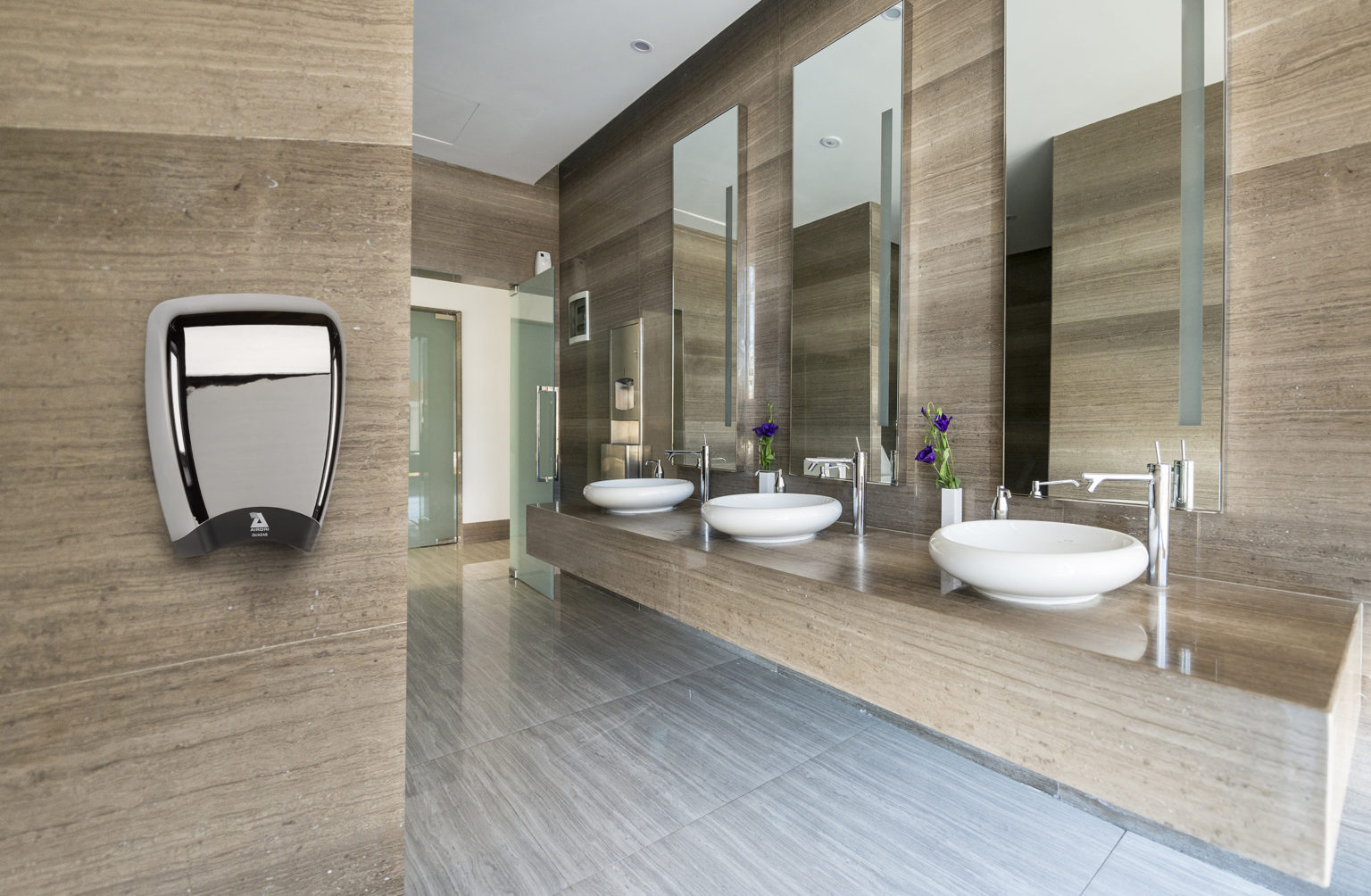Plastic products, made up of synthetic or semi-synthetic polymers, play such a big part in our everyday lives that we rarely give them a second thought.
Plastic has become an intrinsic part of the global economy over the last half-century, with production increasing twentyfold in this time due to its low cost and functional versatility. And with around 8 billion tons of plastic waste ending up in our oceans every day, it is estimated that they will contain more plastic than fish by 2050.
Whilst it makes for very shocking reading, there are some simple and sustainable swaps we can make to make a difference. Whilst most people assume plastic carrier bags, bottles, single use wet wipes and daily takeaway coffee cups are the obvious offenders, the contents of your washroom may be equally damaging.
When it comes to the environment, any change is positive and can make a huge difference. It’s far better to be ‘working towards’ than doing it next week, month or year.
Read on for some ideas on where to start.
Plastic Free Soap Dispensers
According to government reports, the UK gets through 13 billion plastic bottles every year, with only 7.5 billion being recycled – the rest ending up as landfill, litter or incinerated.
Soaps and hand sanitisers often come in plastic bottles, so switching to plastic free soap dispensers, made of aluminium or stainless steel, in washrooms means less plastic waste to pollute the environment.

Automatic dispensers, featuring a sensor that activates when a user places their hands underneath it, also have health and hygiene benefits, minimising the spread of bacteria and germs.
Swap Paper Towels for Eco Hand Dryers
It doesn’t take long for even a small business to generate a vast amount of paper towel waste and with just one paper towel dispenser sending 160kg of waste to landfill each year, the environmental cost of using paper towels is huge.
Paper towels are categorised as contaminated waste and as such cannot be recycled, meaning that they all end up in landfill, usually in plastic bags. The decay of paper products in landfill produces methane gas, which has a global warming potential of 28 times that of carbon dioxide. Paper towel production itself has a huge impact on the environment, with manufacturing, transportation, packaging and storage all producing significant levels of CO2.
Choosing energy efficient, eco-friendly hand dryers instead of paper towels will save you up to 97% on annual costs while also improving cleanliness. Further to this, good quality hand dryers eliminate the need to refill and dispose of paper towels, lowering maintenance costs.
“Most people don’t realise that paper towels can’t be recycled for hygiene reasons, so every one that is used ends up in landfill. That can really add up for businesses and it’s not very economical either,” said Steve Whittall, Chief Operating Officer at manufacturing company Airdri.
Steve continued: “It takes little energy to dry one pair of hands. However, in public buildings where washrooms are used daily for eight or more hours, these energy usages can mount up. Therefore, exceptional energy efficiency is paramount. Our bespoke motors help achieve best-in-class energy efficiency, requiring only 200 watts of power to operate. The annual bill can be as little as £7 for 200 uses a day.”
Visit our paper towel calculator to explore the environmental impact of your business and how much waste you could save.
Split Waste Bins
Split waste bins provide an effective waste management system, allowing users to effectively separate rubbish into recyclable and non-recyclable categories. Again, these can be made of stainless steel, aluminium or nickel rather than plastic.
Other Eco-Friendly Washroom Tips
- Reduce water waste by choosing toilets that are more water efficient by using less water per flush
- Install motion activated sinks as another option to reduce water waste
- Bathroom stall partitions made from stainless steel or HDPE solid plastic are 100% recyclable
- Switch to energy saving light bulbs and consider motion sensor lights that only turn on when someone is in the washroom
- Clean with eco-friendly products and materials
- Install plastic-free baby changing units
Work With Like-Minded Organisations
Working towards sustainability doesn’t have to a be painful process, more a gradual transition. It’s about making conscious decisions. When it comes to renewing supplies think about choosing companies that have the same ethical and environmental commitments as yours and it will mean you’re halfway towards your goal.


